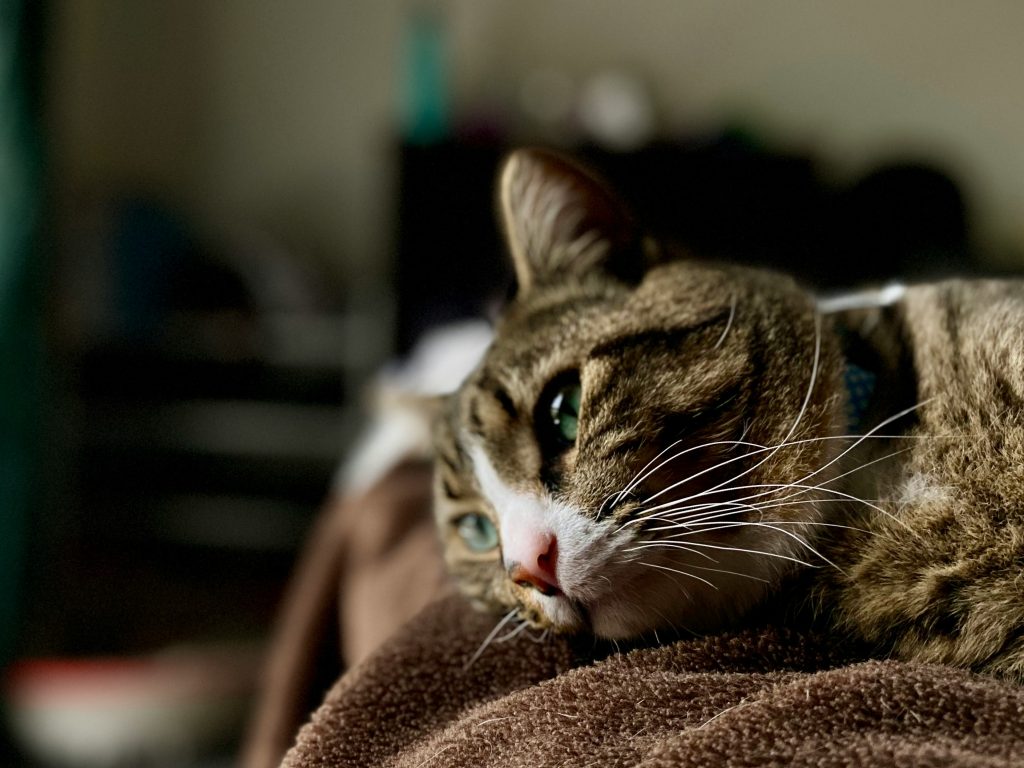Pets and Their People Blog
When Cats Grieve: Understanding Feline Loss and How to Help
Grief isn’t just a human experience; cats also mourn the loss of those they love. Whether it’s a fellow cat, another pet, or a human family member, cats can form deep emotional bonds and feel their absence in ways that might surprise us.
To help our cats through this difficult time, it’s important to recognize the signs of feline grief.
How Cats Express Grief
Every cat is unique, and just like people, they grieve in their own ways. Some common signs of grief in cats include:
- Loss of appetite or reluctance to eat
- Increased vocalization—crying out or calling for the missing family member
- Hiding or becoming more withdrawn than usual
- Changes in behavior, such as increased clinginess or, conversely, seeming more aloof
- Overgrooming or other repetitive behaviors that signal stress
- Sleeping more (or less), often in new or unusual spots
Some cats may appear completely unaffected—but even these seemingly “stoic” felines may be grieving in subtle ways.
It’s always worth paying close attention to behavioral changes, even minor ones.
Helping Your Cat Cope with Loss

(Photo by Tim King on Unsplash)
While you can’t take away your cat’s grief, there are ways to help them feel more safe and supported during this difficult time:
1. Stick to a Routine
Cats thrive on predictability. Keeping their daily schedule—mealtimes, play sessions, and bedtime—consistent can give them a sense of security when their world feels uncertain.
2. Offer Extra Comfort
If your cat seeks out more attention, go ahead and provide it—gentle petting, brushing, or simply sitting nearby can go a long way. But let your cat set the pace; don’t force interaction if they’re not ready.
3. Add Enrichment
Mental stimulation can help redirect your cat’s energy and reduce stress. Try puzzle feeders, new toys, or window perches. Even a cardboard box or paper bag can become an exciting distraction.
4. Watch for Concerning Signs
If your cat stops eating for more than 24 hours, becomes lethargic, or shows signs of illness or extreme stress, consult your veterinarian. Grief can sometimes trigger or mask underlying health issues.
Patience, Love, and Understanding
Grieving cats don’t need fixing—they need time, patience, and a sense of safety. With your support, most cats will gradually adjust and regain their emotional balance. And in the process, the bond you share may even grow stronger.
Remember, your cat isn’t just mourning a companion—they’re navigating a major change. By being present and compassionate, you become their anchor in a time of loss.
About the Author

Mary Stevens is a new cat behavior consultant with nearly two decades of experience as a veterinary technician. In 2022, Mary received her cat training certificate from Animal Behavior College. Since January 2023, she has been under the mentorship of Laura Cassiday at Pawsitive Vibes Cat Behavior and Training. In the past year, she has become a Certified Cat Friendly Professional, a certified Fear Free Professional, and has started her own consultations for minor behavioral problems for Pawsitive Vibes Cat Behavior and Training. Mary’s extensive experience in veterinary medicine, combined with her specialized training in feline behavior, brings a unique and valuable perspective to her consultations.
You can find her cat behavior services, Minis With Mary, at www.pawsitivevibescats.com


